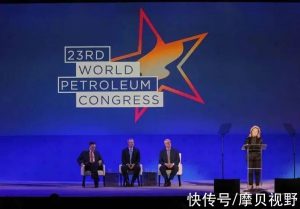
On December 6 (Beijing time), the 23rd World Petroleum Congress opened in The south-central US city of Houston. The theme of this conference is “innovative energy solutions”, will review and summary of oil and gas industry’s contribution to a changing world, will focus on COVID – 19 outbreak to the global oil industry, the influence of the United Nations conference on climate change after the oil and gas industry how to act, and how to ensure safe, cheap, sustainable and stable supply of energy.
The agenda of the congress is divided into two parts: the technical programme and the strategic programme. Among them, the technical program includes 23 sub-forums in five sections, as well as a number of roundtables and wall newspaper exchanges, to discuss key issues and challenges facing the global oil and gas sector. The strategic plan includes keynote speech, energy Ministers forum, oil Company CEO roundtable, youth forum, etc. Energy expert Dr. Daniel Yergin, vice president of IHS Markit, received the Dewhurst Award for his role in energy, international politics and economics.
The World Petroleum Congress is held every three years and is hosted by the London-based World Petroleum Council. Established in 1933, the COUNCIL now has 65 members representing more than 96 percent of global oil and gas production and consumption. Known as the “Olympics” of the oil industry, the World Petroleum Congress covers a wide range of topics, including technological advances in upstream and downstream operations of the oil industry, the role of natural gas and renewable energy, industry management and its impact on society, economy and environment.
This conference will be around the theme of “innovative energy solutions”, reviews and summarizes the oil and gas industry’s contribution to a changing world, and the outbreak of the new champions league impact on the global oil industry, the United Nations conference on climate change after the oil and gas industry to action and to ensure the safe, cheap, sustainable and stable supply of energy, and other important issues for further discussion.
The conference covers two parts: Technical Program and Strategic Program. Among them, the technical program includes 23 sub-forums in five major sectors, as well as a number of roundtables and wall newspaper exchanges, to discuss the problems and challenges facing the global oil and gas industry from the perspectives of upstream innovation, downstream and petrochemical innovation, natural gas innovation, future energy landscape, and energy solution management.
The strategic plan includes keynote speeches, energy ministers’ meetings, oil company CEO roundtable meetings, industry luncheons and youth forums. In the strategic program, energy expert Dr. Daniel Yergin, vice president of IHS Markit, will be presented with the Dewhurst Award for his role in energy, international politics and economics.
There will be more than 150 speakers, including government energy ministers, corporate ceos, industry experts and scholars, and more than 4,000 delegates from more than 70 countries. The exhibition, held in conjunction with the conference, also created an “innovation zone” for the first time, dedicated to showcasing innovative technologies and tools for start-ups.
“The World Petroleum Congress is one of the most important oil and gas conferences in the world. “This year’s conference comes at a time when the oil and gas industry is undergoing tremendous transformation, where innovation and resilience are particularly important.” Jeff Shellebarger, chairman of the organizing committee for the 23rd World Petroleum Congress.
The World Petroleum Congress is hosted by the London-based World Petroleum Council. Established in 1933, the council now has 65 members representing more than 96 percent of global oil and gas production and consumption. Known as the “Olympics” of the oil industry, the World Petroleum Congress covers a wide range of topics, including technological advances in upstream and downstream operations of the oil industry, the role of natural gas and renewable energy, industry management and its social, economic and environmental impacts.